Уголовное наказание: понятие, система, объект назначения, состав отбывания. Монография - [71]
X. The objects of imposition of the penalty could be classified “vertically”: general, generic, specific, direct and “horizontally”: basic (essential) and additional (substantive);
XI. Whether the compulsory character of commune and correctional working corresponds to the international acts, depends on the understanding of the term “the convict” within the international standards, either in a narrow or its wide sense. If it is treated in its wide sense, i. e. the contents of this notion includes both the category of the condemned and the category of the convicts, thus the analyzed penalties do not contradict to the international regulations. In case the notion of “the convict” is regarded in its narrow sense, i.e the category of “the convict” is not included, compulsory and correctional working contradicts to the international regulations. In this case, the mentioned types of penalty are to be applied only according to the advance consent of the convict. Thus, the following amendments should be made, “Compulsory working is imposed by the court only according to the advance consent of the convict”; 2) Part 1 Article 50 of the Criminal Code of the Russian Federation with the following, “Correctional working is imposed by the court only according to the advance consent of the convict”; 3) Part 1 Article 53.1 by the following, “Mandative working is imposed by the court only according to the advance consent of the convict”;
XII. The definition of the object for the convicts to work at, as well as the type and the character of the serviced working, as we see it, should be done only by the court. otherwise, the organs, executing the criminal penalty in the form of compulsory, correctional and mandative working could change the penal contents of this punishment. The court, defining the object for the convict to work at, should take into account, if possible, the type and the character of the serviced working and the point of view of the convict;
XIII. It is necessary to make amendments and additions to the Part 3 Article 23 of the Federal Law “on Service Commitment and Military Duty” on March 28, 1998, № 53-ФЗ, and formulate it this way, “Citizens, servicing a penalty in the form of compulsory, correctional working, limitation of freedom, arrest or freedom deprivation are not to be called for military service. Also, the citizens, who serve the penalty in the form of a fine or deprivation of right to take some positions or restriction of activities, are not to be called for military service in definite military elements”;
XIV The contents of servicing the criminal penalty should be understood as a complex of law-provided objective and subjective features (elements), characterizing servicing the measure of a state compulsion as servicing a definite type of penalty;
XVI The object of servicing the penalty is understood as elements of the legal status (situation) of the convict, i. e. rights, obligations and legal interests of the convict, defined by the court to undergo the penal impact on the side of an institution or an organ, or an official, executing a criminal penalty;
XVI. The conducted analysis of the objects of servicing the criminal penalty showed out the number of problems to be mentioned: first, definite rights, obligations and legal interests of the convict, defined by the court, could not undergo the penal impact; second, some rights, obligations and legal interests of the convict, defined by the court to undergo the penal impact are to be updated according to the changing conditions.
XVII. Objects of servicing the penalty, i. e. rights, obligations and legal interests of the convict, defined by the court to undergo the penal impact from the institution or an organ, official, executing the criminal penalty, depending on the sphere of legal regulations, could be classified into three groups: 1) rights, obligations, legal interests of the convict, provided by the Criminal Code of the Russian Federation; 2) rights, obligations, legal interests of the convict, provided by the criminal executional legislation; 3) rights, obligations, legal interests of the convict, provided by the Federal legislation;
XVIII. Rights, obligations and legal interests of the convict, defined by the court to undergo the penal impact, depending to the specific features of the character, could be divided into general and special. General rights, obligations and legal interests are those, which undergo the penal impact in case any type of the penalty is undergone. Special rights, obligations and legal interests of the convict, defined by the court to undergo the penal impact, are those, which characterize specific types of penalty;
XIX. The objective side of servicing the penalty is a complex of features, characterizing the outer side of servicing the penalty. The objective side of the penalty includes the following features: 1) undergoing the penal impact, encroaching this or that object; 2) the arrived consequences in the form of deprived, limited, interchanged or amended rights, obligations and legal interests of the convict; 3) the causal interdependence between the process of undergoing the penal impact and the arrived consequences of the convict; 4) order and conditions, and place, term, means and a way of undergoing the penal activity (servicing the sentence);
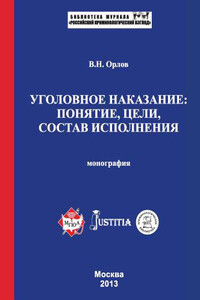
В монографии рассматриваются понятие, содержание, цели уголовного наказания, состав исполнения уголовного наказания. Впервые комплексно проанализированы объективные и субъективные признаки (элементы) состава исполнения уголовного наказания.Для студентов, адъюнктов, аспирантов, преподавателей юридических вузов и факультетов, практикующих юристов, работников уголовно-исполнительной системы и иных правоохранительных органов, может представлять интерес для всех, кто интересуется уголовным наказанием.
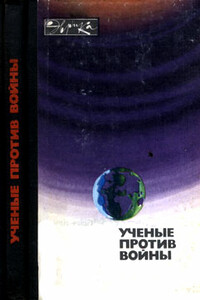
В сборнике крупнейшие советские ученые-академики Александров А., Велихов Е., Марков М. и другие решительно выступают против угрозы термоядерной войны и рассказывают о ее катастрофических для всего человечества последствиях. Издание рассчитано на массового читателя.Fb2 создан по материалам сайта http://nplit.ru «NPLit.ru: Библиотека юного исследователя».
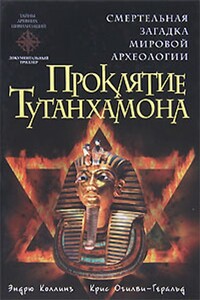
День 4 ноября 1922 года стал одним из величайших в истории мировой археологии. Именно тогда знаменитый египтолог Говард Картер и лорд Карнарвон, финансировавший раскопки, обнаружили гробницу фараона Тутанхамона, наполненную бесценными сокровищами Однако для членов экспедиции этот день стал началом кошмара. Люди, когда-либо спускавшиеся в усыпальницу, погибали один за другим. Газеты принялись публиковать невероятные материалы о древнем египетском демоне, мстящем археологам за осквернение гробницы…В своей увлекательной книге известные исследователи исторических аномалий Коллинз и Огилви-Геральд подробно изложили хронологию открытия гробницы Тутанхамона и связанных с этим загадочных событий Основываясь на письмах и статьях знаменитых археологов, а также воспоминаниях очевидцев, авторы задаются сенсационным вопросом: не могли ли Говард Картер и лорд Карнарвон обнаружить в гробнице Тутанхамона некую взрывоопасную тайну, способную в случае огласки перевернуть сложившиеся взгляды на библейскую и мировую историю? И не могла ли эта тайна стать для первооткрывателей усыпальницы реальным проклятием — осуществляемым не мстительными богами Египта, а наемными убийцами на службе влиятельных политических сил, которым могла помешать неудобная правда?

Земная цивилизация достигла критического порога, и потеря людьми интереса к космосу лишь вершина айсберга. Первые космические программы имели ясную цель, объявленную Циолковским: расселение человечества по Солнечной системе. Сейчас цель потеряна как для развития космонавтики, так и для человечества в целом. Оно должно сдать экзамен на разумность и обеспечить себе переход на новую ступень развития.(«Техника-молодежи», № 8/2004)
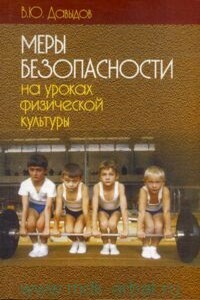
Настоящее пособие знакомит учителей физической культуры с нормами санитарно-гигиенического режима, мерами пожарной безопасности на уроках физкультуры. В нем представлены нормативные акты, формы документов, извлечения из методических указаний, правил и инструкций по охране труда, регламентирующие безопасность проведения физкультурно-оздоровительной, учебной и внеклассной работы в образовательных учреждениях; показан порядок и правила проведения инструктажей по мерам безопасности.Пособие предназначено для студентов, преподавателей, учителей физической культуры и школьников.
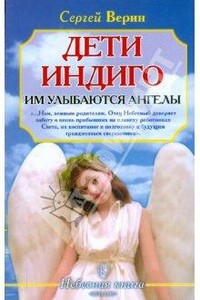
Эта книга о наших детях, о происшествиях и явлениях, связанных с ними и выходящих за рамки традиционного мировосприятия.Вас, уважаемый читатель, ждут встречи с героями невероятных историй, удивительными людьми, участниками и очевидцами феноменальных событий, необъяснимых с точки зрения логики и «приземленного» мышления.Также вы получите возможность побывать в гостях у известной духовной целительницы Зины Ивановны, побеседовать с ней, вместе проанализировать почерпнутую информацию. Эта необычная женщина будет комментировать те удивительные истории, которые рассказаны на этих страницах.

В книге рассказывается история главного героя, который сталкивается с различными проблемами и препятствиями на протяжении всего своего путешествия. По пути он встречает множество второстепенных персонажей, которые играют важные роли в истории. Благодаря опыту главного героя книга исследует такие темы, как любовь, потеря, надежда и стойкость. По мере того, как главный герой преодолевает свои трудности, он усваивает ценные уроки жизни и растет как личность.